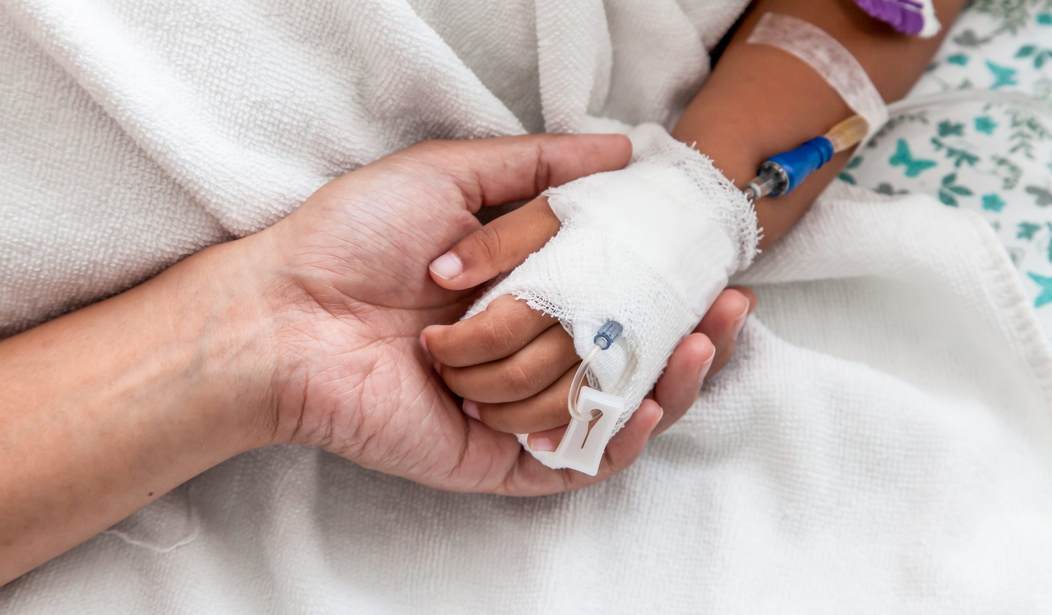That first trip to the emergency room is an unwelcome rite of passage for first time parents. Nothing is quite like that first frantic dash to the hospital with your limp, sick, or bleeding offspring draped across your arms. Then, of course, there’s the waiting. And more waiting. Only in the rarest circumstances does anyone notice just how vital it is that your child is seen immediately. Otherwise, you wouldn’t have come, right?
Having a child admitted is another level of parenting which exercises a different set of parental skills not normally used on a daily basis.
The good news is that after traumatizing a generation of children, hospitals finally realized that they need their parents while hospitalized. If that seems astonishing, you need to understand this: hospitals are basically socialistic institutions, as John Stossel recently pointed out. They have a purpose, and sets of protocols to achieve that end. I’m not bashing them. I’ve thanked God more than once for their care. Nevertheless, once you understand their purpose, getting the care you need for your child will be much easier.
I’ve sat in emergency rooms, laid beside babies in intensive care, and slept in countless chairs beside sick and recovering children in hospital beds. That was before ObamaCare. However, this last month sleeping in a recliner beside my mother in the hospital reminded me what it was like to have children in the hospital—and made me realize how far our system has declined since the last time I had curled up next to a hospital bed.
Here are a few things you need to know:
1. Hospitals provide only medical care.
When your child is sick at home, you do everything you can to see to it that he feels secure and comfortable. Being sick is scary. Being sick in a hospital is scarier. Every mother knows that a sick child is a needy, demanding child. You comply because you understand they need rest and quiet as well as medication to heal. In a hospital, they provide the bed but not the rest or the quiet. It’s up to you to see that your child’s emotional needs are met. You provide the nurturing that is so vital to healing.
2. Protection
A sick child is vulnerable and tender. When you think about it, a child sick enough to be hospitalized is a very sick child who was just thrown into the gears of a medical factory. There are orders to be filled and schedules to keep. One example is the necessity of taking blood. We have had more than one phlebotomist slip into the room of a sleeping child and wake him by drawing blood. If you know this is coming you can prepare your child, even if that just means waking him a few minutes before and holding him during or after.
Most necessary procedures are painful and even frightening. See to it that it’s done in a manner that will not scar your child emotionally.
3. Observation
Doctors and nurses can’t be by your child’s bedside like you can. And no one knows her like you do. Therefore, they don’t see the progress or decline in the same way. Your observations are vital. Oftentimes it’s a mother who catches the potential danger. You are your child’s and your doctor’s first line of defense when it comes to his or her health.
A good doctor understands your role as a parent, listens to your concerns, and follows them like clues. A proficient doctor who will link arms with a vigilant parent is the best health care system.










Join the conversation as a VIP Member